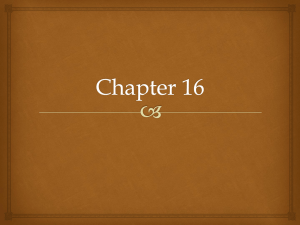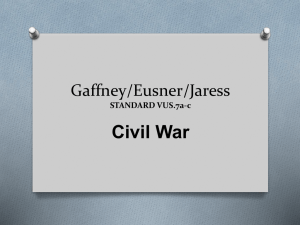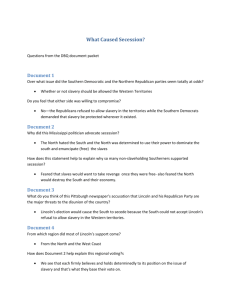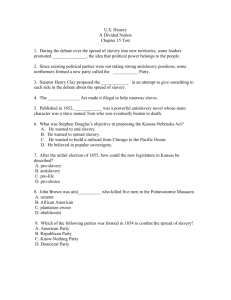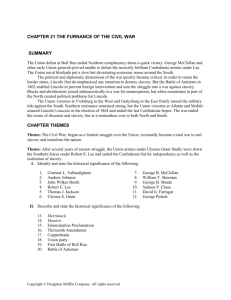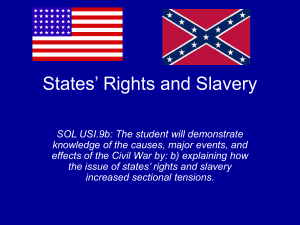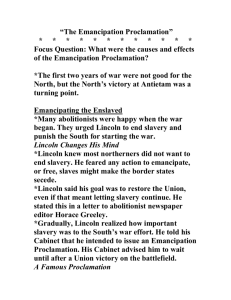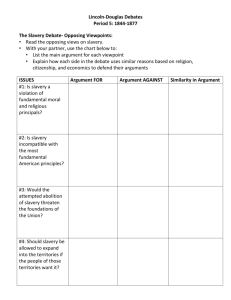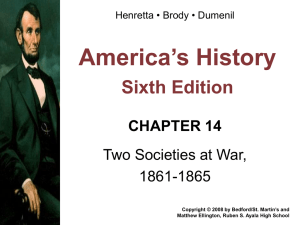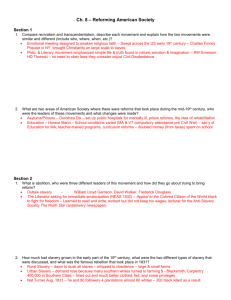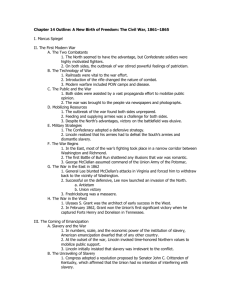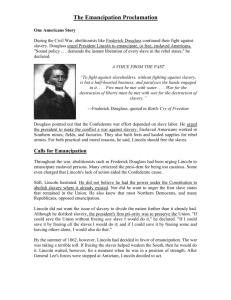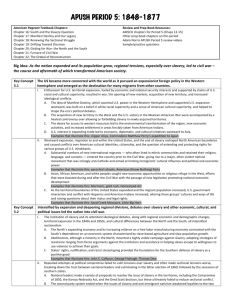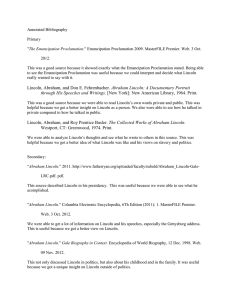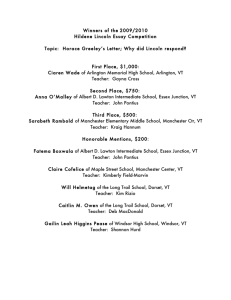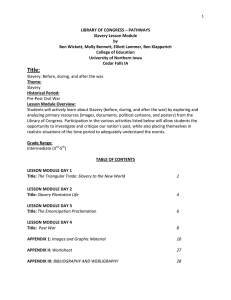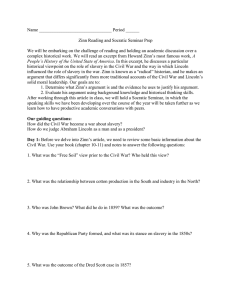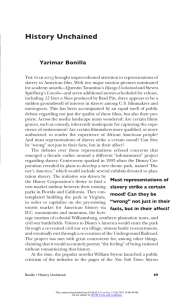Essays Berkin Chapter 14
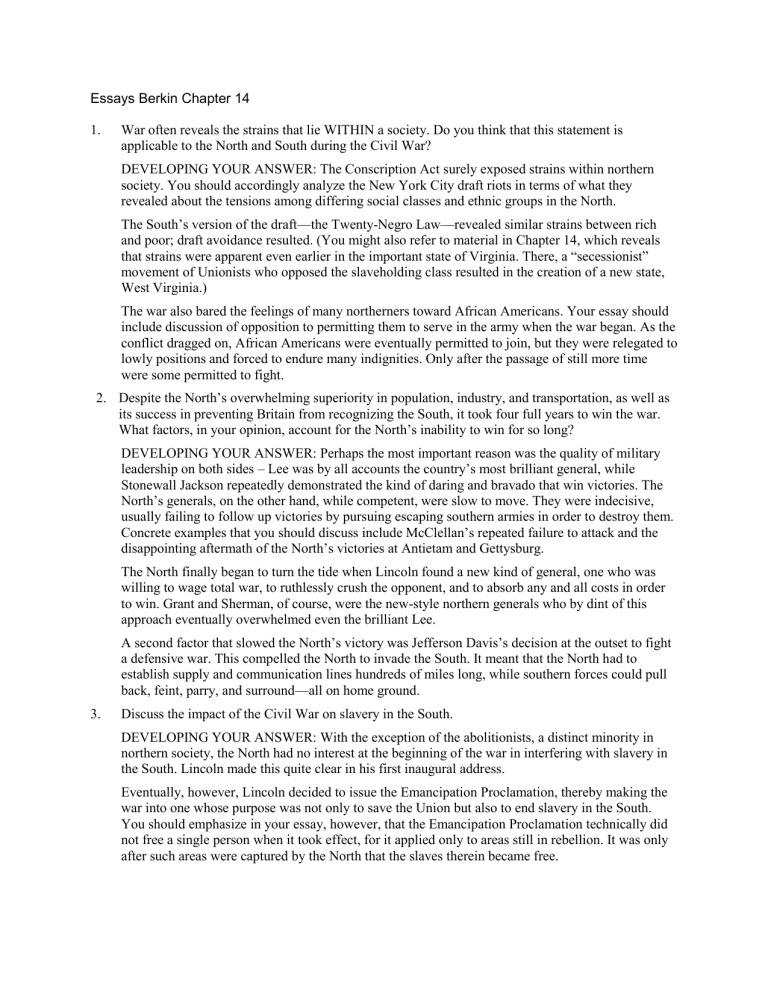
Essays Berkin Chapter 14
1. War often reveals the strains that lie WITHIN a society. Do you think that this statement is applicable to the North and South during the Civil War?
DEVELOPING YOUR ANSWER: The Conscription Act surely exposed strains within northern society. You should accordingly analyze the New York City draft riots in terms of what they revealed about the tensions among differing social classes and ethnic groups in the North.
The South’s version of the draft—the Twenty-Negro Law—revealed similar strains between rich and poor; draft avoidance resulted. (You might also refer to material in Chapter 14, which reveals that strains were apparent even earlier in the important state of Virginia. There, a “secessionist” movement of Unionists who opposed the slaveholding class resulted in the creation of a new state,
West Virginia.)
The war also bared the feelings of many northerners toward African Americans. Your essay should include discussion of opposition to permitting them to serve in the army when the war began. As the conflict dragged on, African Americans were eventually permitted to join, but they were relegated to lowly positions and forced to endure many indignities. Only after the passage of still more time were some permitted to fight.
2. Despite the North’s overwhelming superiority in population, industry, and transportation, as well as its success in preventing Britain from recognizing the South, it took four full years to win the war.
What factors, in your opinion, account for the North’s inability to win for so long?
DEVELOPING YOUR ANSWER: Perhaps the most important reason was the quality of military leadership on both sides – Lee was by all accounts the country’s most brilliant general, while
Stonewall Jackson repeatedly demonstrated the kind of daring and bravado that win victories. The
North’s generals, on the other hand, while competent, were slow to move. They were indecisive, usually failing to follow up victories by pursuing escaping southern armies in order to destroy them.
Concrete examples that you should discuss include McClellan’s repeated failure to attack and the disappointing aftermath of the North’s victories at Antietam and Gettysburg.
The North finally began to turn the tide when Lincoln found a new kind of general, one who was willing to wage total war, to ruthlessly crush the opponent, and to absorb any and all costs in order to win. Grant and Sherman, of course, were the new-style northern generals who by dint of this approach eventually overwhelmed even the brilliant Lee.
A second factor that slowed the North’s victory was Jefferson Davis’s decision at the outset to fight a defensive war. This compelled the North to invade the South. It meant that the North had to establish supply and communication lines hundreds of miles long, while southern forces could pull back, feint, parry, and surround—all on home ground.
3. Discuss the impact of the Civil War on slavery in the South.
DEVELOPING YOUR ANSWER: With the exception of the abolitionists, a distinct minority in northern society, the North had no interest at the beginning of the war in interfering with slavery in the South. Lincoln made this quite clear in his first inaugural address.
Eventually, however, Lincoln decided to issue the Emancipation Proclamation, thereby making the war into one whose purpose was not only to save the Union but also to end slavery in the South.
You should emphasize in your essay, however, that the Emancipation Proclamation technically did not free a single person when it took effect, for it applied only to areas still in rebellion. It was only after such areas were captured by the North that the slaves therein became free.
Slavery, therefore, continued in areas that had not rebelled (the border states) and that had been recaptured prior to the proclamation’s taking effect. Ending slavery in those regions would have to wait until after the Civil War.
Some slaves in the South ran from their masters (thereby gaining their freedom) to Union army lines, where, as “contrabands,” they worked for the North.
